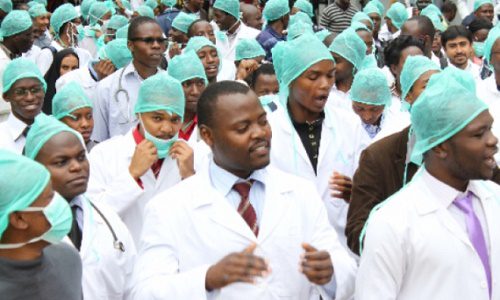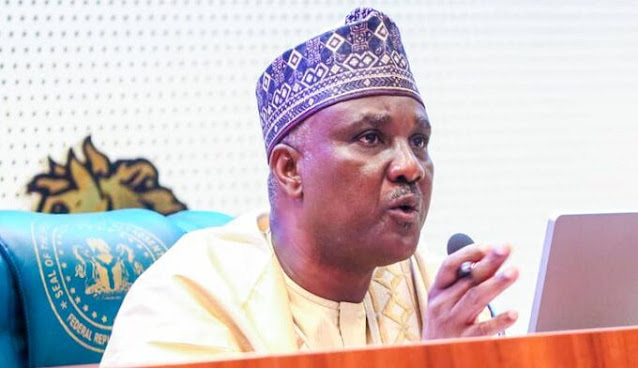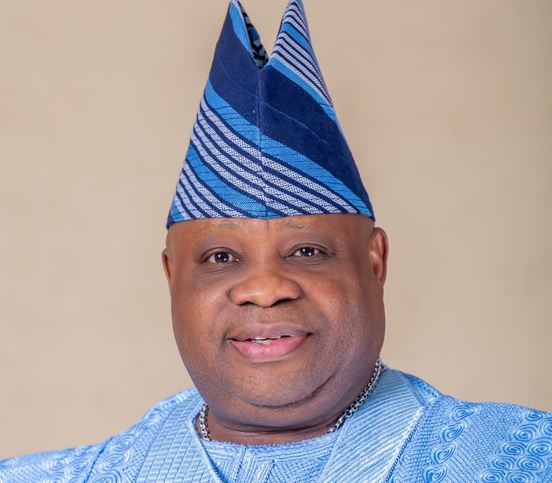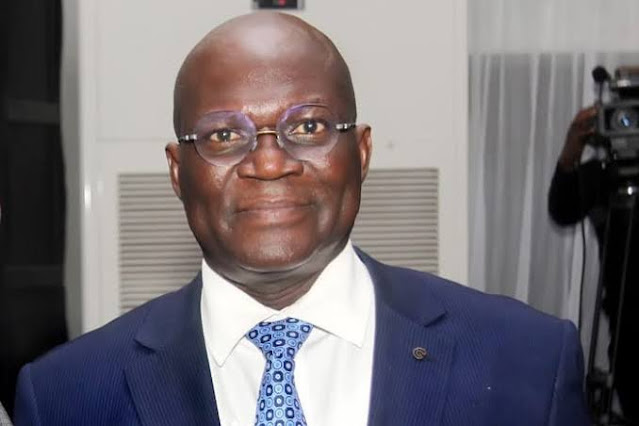Abuja, Nigeria – September 2025
Resident doctors in the Federal Capital Territory (FCT) under the aegis of the Association of Resident Doctors (ARD) have initiated a seven-day warning strike, effective immediately, to press home their demands for the resolution of critical issues affecting their welfare and the healthcare system. The industrial action, which commenced on Monday, September 8, 2025, follows the expiration of a 14-day ultimatum issued to the FCT Administration. The strike is a response to the non-payment of salaries, inadequate allowances, and other unresolved grievances that have long plagued the medical workforce in Nigeria’s capital.
The decision to embark on the strike was announced by the President of the FCT ARD, Dr. John Egbe, during a press conference in Abuja. Dr. Egbe highlighted the severe challenges faced by resident doctors, including unpaid salaries for some members, non-implementation of salary increments, and poor working conditions. The strike, described as a last resort, is intended to draw the attention of the FCT Administration and the federal government to the dire situation in public hospitals and the urgent need for reforms to safeguard the healthcare system.
Background and Context of the Strike
The healthcare sector in Nigeria has faced persistent challenges over the years, ranging from inadequate funding to infrastructural decay, brain drain, and poor remuneration for healthcare workers. Resident doctors, who form a critical part of the medical workforce, are often at the forefront of these struggles, balancing the demands of training with the provision of essential medical services in under-resourced facilities. In the FCT, which houses some of Nigeria’s most prominent public hospitals, the situation is particularly dire, as the government’s failure to address longstanding issues has pushed doctors to the brink.
The FCT ARD’s decision to strike comes amid growing frustration over the government’s apparent inaction in addressing the welfare of doctors. According to Dr. Egbe, some resident doctors have not received their salaries for months, a situation that has caused significant financial hardship. Additionally, the non-implementation of the Medical Residency Training Fund (MRTF), which is meant to support the training and welfare of resident doctors, has further exacerbated tensions. Other grievances include the non-payment of the skipping allowance, inadequate hazard allowances, and delays in the promotion of deserving doctors.
The strike action follows a series of unsuccessful negotiations between the ARD and the FCT Administration. The 14-day ultimatum issued by the association was intended to give the government ample time to address these concerns, but the lack of meaningful progress prompted the doctors to down tools. The seven-day warning strike is seen as a precursor to a potential indefinite strike if the government fails to meet the demands of the doctors.
Details of the Demands
The FCT ARD has outlined a series of demands that must be met to end the strike and restore normalcy to healthcare services in the FCT. These demands include:
Payment of Outstanding Salaries: The immediate payment of all outstanding salaries owed to resident doctors, some of whom have gone months without remuneration. The non-payment of salaries has been described as a violation of basic labor rights and a significant demotivator for doctors working in high-pressure environments.
Implementation of the Medical Residency Training Fund (MRTF): The MRTF, established to support the training and welfare of resident doctors, has not been fully implemented in the FCT. The doctors are demanding that the government honor its commitment to provide funding for their professional development.
Payment of Skipping Allowance: The skipping allowance, which compensates doctors for the additional responsibilities they take on during their residency training, has not been paid to many resident doctors in the FCT. The ARD is calling for the immediate release of these funds.
Improved Hazard Allowance: The current hazard allowance for doctors, which is meant to compensate them for the risks associated with their work, is widely considered inadequate. The doctors are demanding an upward review of the allowance to reflect the current economic realities and the dangers they face, particularly in the context of infectious diseases.
Timely Promotions and Career Progression: The ARD has raised concerns about delays in the promotion of resident doctors, which affects their career progression and morale. The association is calling for a streamlined process to ensure timely promotions and the payment of associated arrears.
Improved Working Conditions: Beyond financial concerns, the doctors are demanding better working conditions, including the provision of essential medical equipment, adequate staffing, and improved infrastructure in public hospitals. The lack of these resources has made it difficult for doctors to deliver quality care to patients.
Impact of the Strike on Healthcare Delivery
The seven-day warning strike is expected to have a significant impact on healthcare delivery in the FCT. Public hospitals in Abuja, including the National Hospital, Asokoro District Hospital, and Maitama District Hospital, rely heavily on resident doctors to provide specialized medical care. With the strike in effect, non-emergency services, including outpatient consultations, elective surgeries, and routine medical check-ups, are likely to be disrupted.
Dr. Egbe emphasized that emergency services would be maintained during the strike to minimize the impact on critically ill patients. However, the reduction in medical staff availability could lead to longer waiting times, overcrowding in emergency wards, and increased pressure on the few doctors who remain on duty. Patients who rely on public hospitals for affordable healthcare are likely to bear the brunt of the strike, as many may be forced to seek treatment in private facilities, which are often more expensive.
The strike also comes at a time when Nigeria’s healthcare system is grappling with multiple challenges, including a resurgence of infectious diseases, rising cases of non-communicable diseases, and the ongoing brain drain of medical professionals. According to a 2023 report by the Nigerian Medical Association (NMA), over 5,000 doctors leave Nigeria annually in search of better opportunities abroad, a trend that has been exacerbated by poor remuneration and working conditions. The strike by FCT resident doctors could further highlight these systemic issues and put additional pressure on the government to act.
Reactions from Stakeholders
The strike has elicited varied reactions from stakeholders in the healthcare sector and the public. The Nigerian Medical Association (NMA), the umbrella body for doctors in Nigeria, has expressed solidarity with the FCT ARD, urging the government to address the doctors’ demands promptly to prevent further deterioration of the healthcare system. In a statement, the NMA President, Dr. Uche Ojinmah, described the situation as “unacceptable” and called for urgent dialogue between the government and the striking doctors.
Patients and their families have also voiced their concerns about the strike. Mrs. Amina Ibrahim, a patient at the National Hospital, expressed frustration at the disruption of her scheduled surgery, stating, “I understand the doctors’ grievances, but this strike is affecting innocent people like me who depend on these hospitals for treatment.” Others have called on the government to prioritize healthcare funding to prevent such industrial actions in the future.
The FCT Administration, through its spokesperson, has acknowledged the doctors’ grievances and assured the public that efforts are underway to resolve the issues. However, the administration has not provided a clear timeline for meeting the demands, a situation that has further fueled the doctors’ resolve to continue the strike.
Broader Implications for Nigeria’s Healthcare System
The strike by FCT resident doctors is not an isolated incident but a symptom of deeper systemic issues within Nigeria’s healthcare system. The country’s healthcare sector has been chronically underfunded, with budgetary allocations consistently falling below the 15% recommended by the African Union’s Abuja Declaration of 2001. In 2025, Nigeria’s health budget is estimated to be less than 6% of the national budget, a figure that is insufficient to address the growing healthcare needs of a population of over 200 million.
The non-payment of salaries and allowances is a recurring issue in Nigeria’s public sector, affecting not only doctors but also nurses, teachers, and other essential workers. This has led to a cycle of strikes and industrial actions that disrupt critical services and erode public trust in the government. For resident doctors, who are often overworked and underpaid, the lack of financial security adds to the physical and emotional toll of their profession.
The brain drain of medical professionals is another significant challenge. The United Kingdom, Canada, and Saudi Arabia are among the top destinations for Nigerian doctors seeking better pay and working conditions. The loss of skilled professionals has left public hospitals understaffed, with many facilities operating at less than 50% of their required workforce. The strike by FCT resident doctors could further exacerbate this trend, as disillusioned doctors may consider emigration as a viable option.
Government’s Response and the Path Forward
The FCT Administration and the federal government face mounting pressure to resolve the strike and prevent further escalation. In the past, similar strikes by resident doctors have been resolved through negotiations and the intervention of key stakeholders, including the NMA, the Ministry of Health, and the Ministry of Labour and Employment. However, the recurring nature of these strikes suggests that temporary fixes are insufficient to address the underlying issues.
To resolve the current crisis, the government must prioritize the payment of outstanding salaries and allowances, as well as the implementation of the MRTF. Additionally, a comprehensive review of the healthcare sector’s funding and management is necessary to address infrastructural deficits and improve working conditions. Investing in medical equipment, hiring additional staff, and upgrading hospital facilities would go a long way in restoring confidence in the healthcare system.
The government could also explore public-private partnerships to bridge the funding gap and improve the quality of healthcare services. Incentives such as tax breaks, subsidized training programs, and competitive salaries could help retain doctors and reduce the brain drain. Furthermore, engaging in proactive dialogue with healthcare workers’ unions could prevent future strikes and foster a more collaborative relationship between the government and the medical community.
Public Health Implications and the Need for Urgent Action
The strike by FCT resident doctors underscores the fragility of Nigeria’s healthcare system and the urgent need for systemic reforms. A prolonged disruption of healthcare services could have devastating consequences, particularly for vulnerable populations such as pregnant women, children, and patients with chronic illnesses. The government’s response to the strike will serve as a litmus test for its commitment to improving healthcare delivery in the FCT and across the country.
Public health experts have warned that the ongoing crisis could lead to an increase in preventable deaths and a further decline in health outcomes. For instance, the disruption of routine medical services could delay the diagnosis and treatment of conditions such as hypertension, diabetes, and cancer, which are on the rise in Nigeria. Additionally, the strain on emergency services could overwhelm hospitals, leading to poorer outcomes for patients with acute conditions.
Civil society organizations and advocacy groups have called for a national dialogue on healthcare reform, emphasizing the need for a holistic approach that addresses funding, infrastructure, and human resources. The involvement of all stakeholders, including the government, healthcare workers, patients, and the private sector, will be crucial in charting a sustainable path forward.
Conclusion
The seven-day warning strike by resident doctors in the FCT is a clarion call for the government to address the longstanding issues plaguing Nigeria’s healthcare system. The demands for unpaid salaries, improved allowances, and better working conditions reflect the broader challenges faced by healthcare workers across the country. While the strike has disrupted healthcare services in the FCT, it has also brought renewed attention to the need for urgent reforms.
As the strike continues, the FCT Administration and the federal government must act swiftly to resolve the doctors’ grievances and restore normalcy to public hospitals. Failure to do so could lead to a prolonged crisis, further eroding public trust in the healthcare system and exacerbating the brain drain of medical professionals. The resolution of this strike could serve as a turning point for Nigeria’s healthcare sector, paving the way for a more resilient and equitable system that prioritizes the welfare of both patients and healthcare workers.






